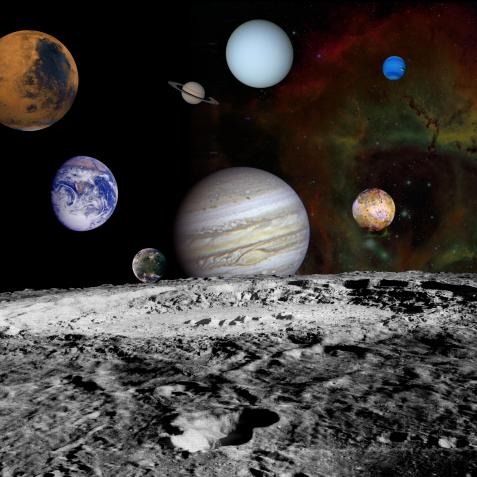
Curiosity Daily Podcast: How Loud Is the Sun?
Learn about a simple way to reduce your internet carbon footprint; how brain images can make you more likely to believe fake science; and how loud the sun is.
Episode Show Notes:
The internet has a big carbon footprint, and you can reduce yours with a simple fix by Kelsey Donk
- Turn off that camera during virtual meetings, environmental study says. (2021). EurekAlert! https://www.eurekalert.org/pub_releases/2021-01/pu-tot011421.php
- Obringer, R., Rachunok, B., Maia-Silva, D., Arbabzadeh, M., Nateghi, R., & Madani, K. (2021). The overlooked environmental footprint of increasing Internet use. Resources, Conservation and Recycling, 167, 105389. https://doi.org/10.1016/j.resconrec.2020.105389
You'll Probably Believe Fake Science if It Comes With a Brain Image by Ashley Hamer
- McCabe, D. P., & Castel, A. D. (2008). Seeing is believing: The effect of brain images on judgments of scientific reasoning. Cognition, 107(1), 343–352. https://doi.org/10.1016/j.cognition.2007.07.017
- Poldrack, R. (2006). Can cognitive processes be inferred from neuroimaging data? Trends in Cognitive Sciences, 10(2), 59–63. https://doi.org/10.1016/j.tics.2005.12.004
- Curtis, G. (2017). Logical Fallacy: Affirming the Consequent. Fallacyfiles.org. http://www.fallacyfiles.org/afthecon.html
How loud is the sun? by Ashley Hamer (Listener question from Noro)
- The Song of the Sun (Published 2012). (2021). The New York Times. https://www.nytimes.com/2012/02/14/science/studying-the-sun-through-its-sound-waves.html
- Scharping, N. (2020, February 4). What Would the Sun Sound Like If We Could Hear It On Earth? Discover Magazine; Discover Magazine. https://www.discovermagazine.com/the-sciences/what-would-the-sun-sound-like-if-we-could-hear-it-on-earth
- Second Thought. (2019). How Loud Is The Sun? [YouTube Video]. In YouTube. https://www.youtube.com/watch?v=ePy_Gs3WTT4
- Bryner, J. (2007, June 4). Sound cranks up the heat in sun’s atmosphere. NBC News; NBC News. https://www.nbcnews.com/id/wbna19032772
- The Singing Sun. (2008). Stanford.edu. http://solar-center.stanford.edu/singing/
- Solar Sounds. (1997). Stanford.edu. http://soi.stanford.edu/results/sounds.html
Subscribe to Curiosity Daily to learn something new every day with Cody Gough and Ashley Hamer. You can also listen to our podcast as part of your Alexa Flash Briefing; Amazon smart speakers users, click/tap “enable” here: https://www.amazon.com/Curiosity-com-Curiosity-Daily-from/dp/B07CP17DJY
See omnystudio.com/listener for privacy information.











